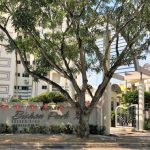A new public housing pricing model is in the works for prime areas like the Greater Southern Waterfront said Minister for National Development, Mr Lawrence Wong.
The intention of the new public housing pricing model is to mitigate what has been known as the ‘lottery effect.’
Table of Contents
The announcement of the new public housing pricing model followed after Prime Minister Lee Hsien Loong said in his National Day Rally speech that the Government is on its way to building 9,000 private and public housing units on the site of the current Keppel Club when the lease expires in two years’ time.

Greater Southern Waterfront (GSW) will have 2,000 hectares of land: six times the size of Marina Bay and in our terms, double the size of Punggol. One of the first new developments for GSW will be on the existing Keppel Club site, which will be redeveloped into a housing precinct, comprising a mix of 9,000 private and public housing units. This will allow a wide range of Singaporeans, both lower and higher income households, to enjoy sea-front living with modern and high-rise residential blocks in the GSW.
Housing in this area is expected to good demand, given its city fringe location, sea-front living and connectivity due to the nearby MRT stations. Additionally, a new business cluster will emerge at a highly sought- after city fringe location where multinationals the likes of Google, Unilever and Cisco are currently situated. Housing prices are expected to increase in the area over the longer term due to the injection of more commercial and entertainment activities in the area.
The development is also expected to accelerate the pace of office decentralization away from the CBD over the next decade. These however are very long term plans, and these announcements are not expected to impact the real estate market over the short to medium term.
Following the announcement by Mr Lee, several analysts raised concerns if public housing in the Greater Southern Waterfront would create a “lottery effect”, where owners sell their units for far higher prices than initially purchased.
Replying to concerns such as this, Mr Wong said that the Government is studying new public housing pricing model for developments in prime areas.
“If you have public housing in such a prime area and if you were to sell it at today’s public housing prices, it will be a very large subsidy. Whoever gets the flats there, by ballot, will be very happy. But it will be a bit of a ‘lottery effect’. Those who don’t get that flat will be very envious,” he said.
“On the other hand, if we were to keep the subsidy the same, then the price of those flats will be very high and out of reach. So we have to work out a new model for public housing in the Southern Waterfront. That’s something we are working on,” he added.
Mr Wong explained that the aim of this initiative was to “provide a better balance between new and resale (flats) in terms of grants”, so that the percentage of people buying those properties “will stabilise going forward.” According to the minister, nearly 75% of current HDB buyers choose new flats, compared to 25% for resale flats.
“I expect with the incentive structure now adjusted, the 75% figure will likely come down in the coming years,” he said.
The new Enhanced CPF Housing Grant (EHG) places no restrictions on flat buyers’ choice of flat type or location, and can be used for new or resale flats. Likewise, Mr Wong reiterated that the Government needed to meet housing demands in Singapore with both new and resale flats.
“If we were to meet demand solely through new flats, there is a real risk that in the longer term, with our ageing demographics and population trends, we might very well end up with an oversupply of flats in Singapore,” he said.
Mr Wong also said that the ministry raised the income ceiling for people buying new HDB flats to accommodate rising income levels.
The income cap for families buying Build-to-Order flats has been raised to S$14,000 from S$12,000, while the ceiling for singles aged 35 and above has been raised to S$7,000 from S$6,000.
“As incomes rise, a few of them at the margins will then exceed the income ceiling and then they would no longer have the chance.
“So we monitor the income ceiling all the time and as incomes rise, we will adjust the income ceilings accordingly so that about eight in 10 or more than eight in 10 Singaporeans will be eligible to buy public housing in Singapore,” said Mr Wong.
How to Secure a Home Loan Quickly
Are you planning to invest in private properties but are ensure of funds availability for purchase? Don’t worry because iCompareLoan mortgage broker can set you up on a path that can get you a home loan in a quick and seamless manner.
Our brokers have close links with the best lenders in town and can help you compare Singapore home loans and settle for a package that best suits your home purchase needs. Find out money saving tips here.
Whether you are looking for a new home loan or to refinance, the Mortgage broker can help you get everything right from calculating mortgage repayment, comparing interest rates all through to securing the best home loans in Singapore. And the good thing is that all our services are free of charge. So it’s all worth it to secure a loan through us.
For advice on a new home loan.
For refinancing advice.






